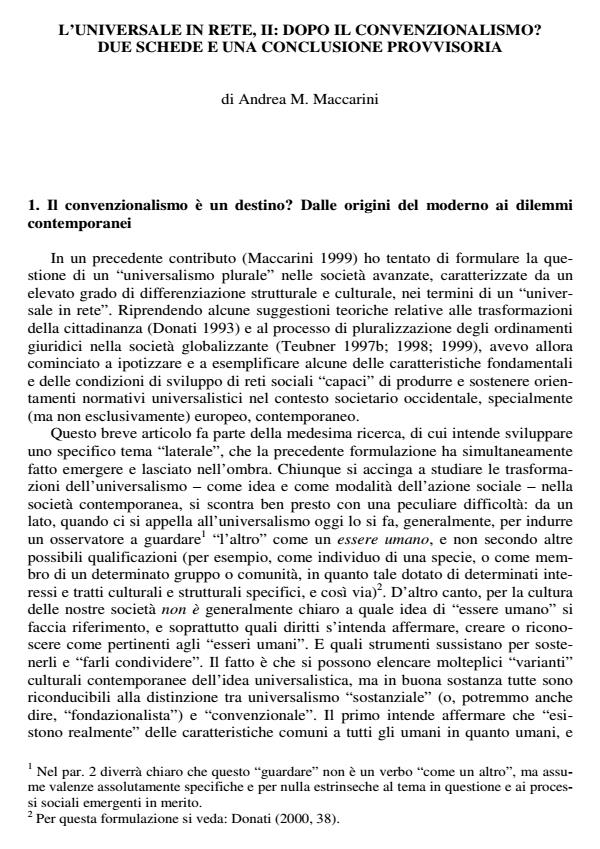L'universale in rete. II: dopo il convenzionalismo? Due schede e una conclusione provvisoria
Journal title SOCIOLOGIA E POLITICHE SOCIALI
Author/s Andrea M. Maccarini
Publishing Year 2001 Issue 2001/1
Language Italian Pages 28 P. File size 196 KB
DOI
DOI is like a bar code for intellectual property: to have more infomation
click here
Below, you can see the article first page
If you want to buy this article in PDF format, you can do it, following the instructions to buy download credits

FrancoAngeli is member of Publishers International Linking Association, Inc (PILA), a not-for-profit association which run the CrossRef service enabling links to and from online scholarly content.
This essay introduces readers to a fundamental issue: the culture of contemporary western societies in its mainstream generally assumes a "purely conventional", i.e. radically non foundational, approach to everything that is "universal". The author questions the idea that this cultural selection should be considered as an unproblematic result of late modernity. He first puts modern "universalism" in historical perspective, in order to show that construction and de-construction of universal and/or universalistic practices, institutions and normative orientations in western societies amounts to a continuous and non-linear morphogenetic process following complex socio-cultural "cycles". He then tries to identify examples of "universalizing" processes with regard to different social circles and sub-systems. Universalizing networks from this perspective can be divided in two general classes: those implying a purely rational-communicative approach, and those comprising a "multidimensional, local and historical" relationality. The author tries to provide a first and basic profile to the latter, and to discuss analogies and differences vis-à-vis the others.
Andrea M. Maccarini, L'universale in rete. II: dopo il convenzionalismo? Due schede e una conclusione provvisoria in "SOCIOLOGIA E POLITICHE SOCIALI" 1/2001, pp , DOI: